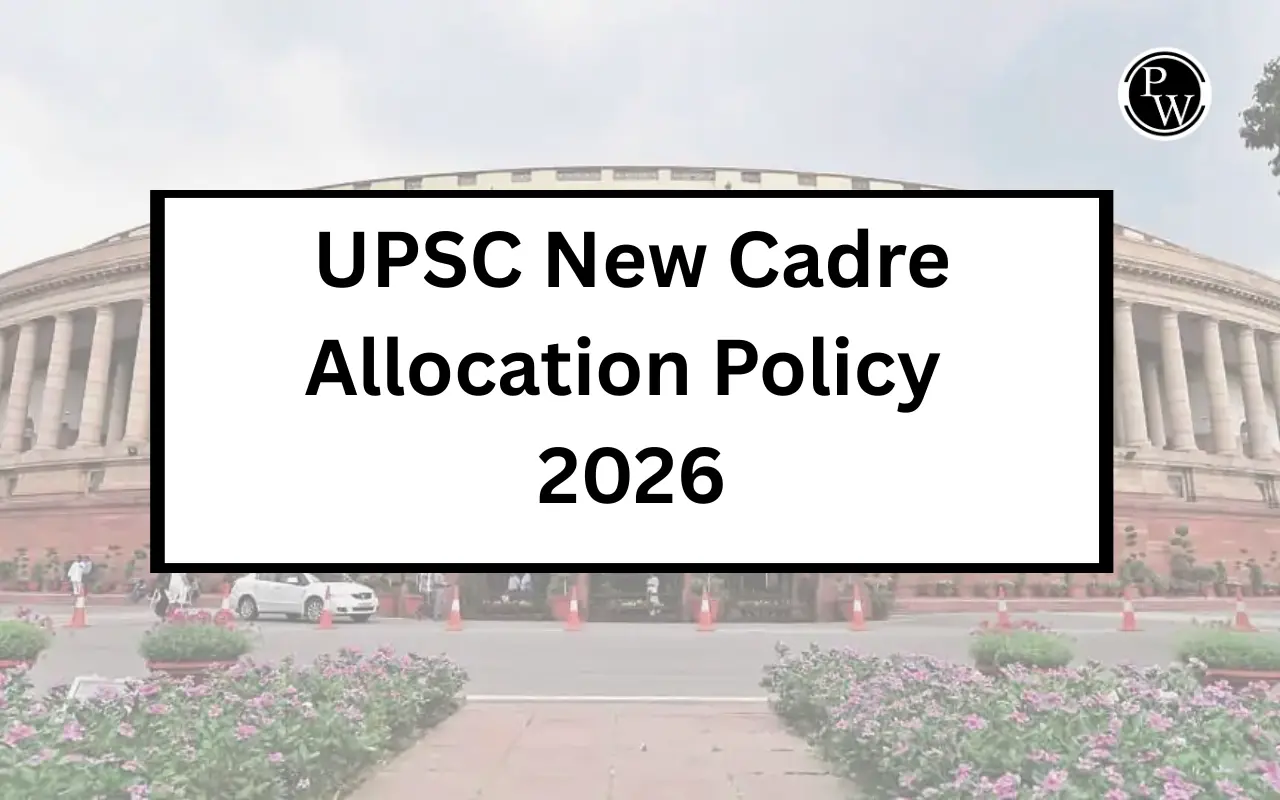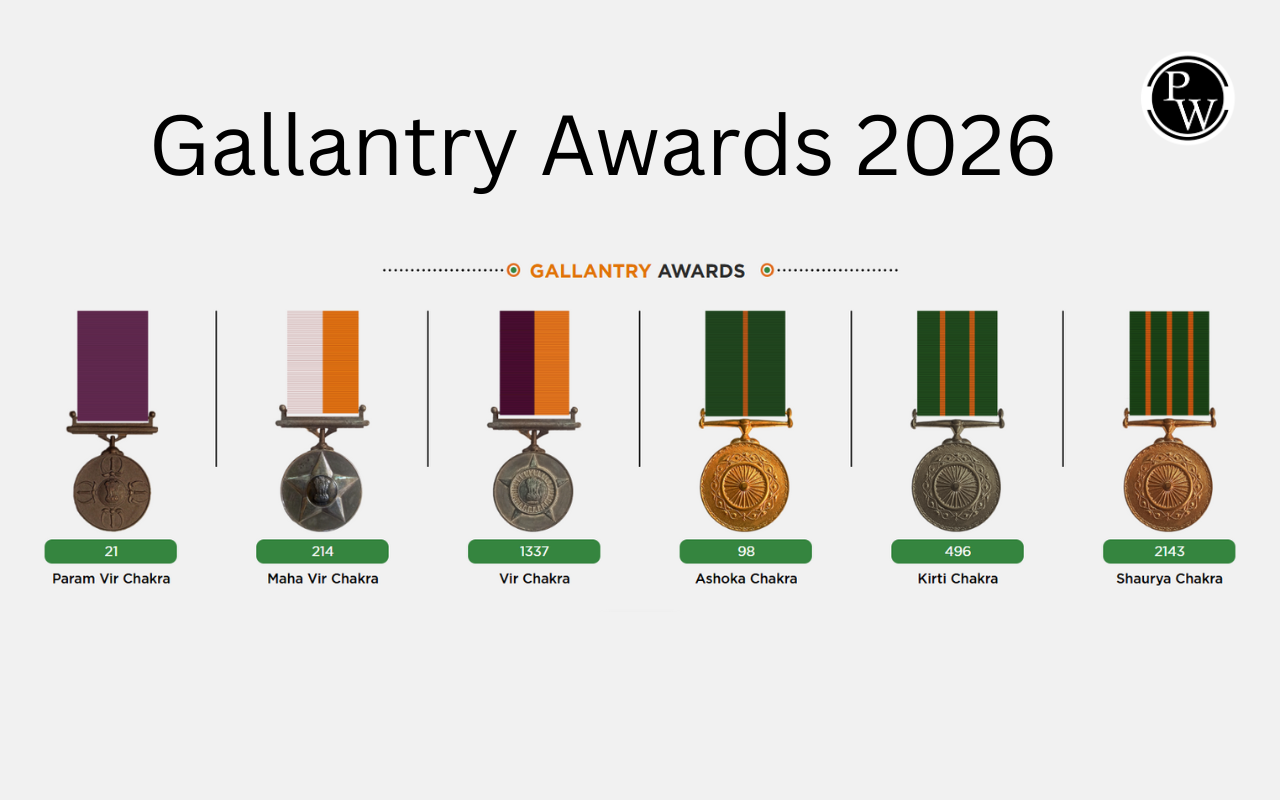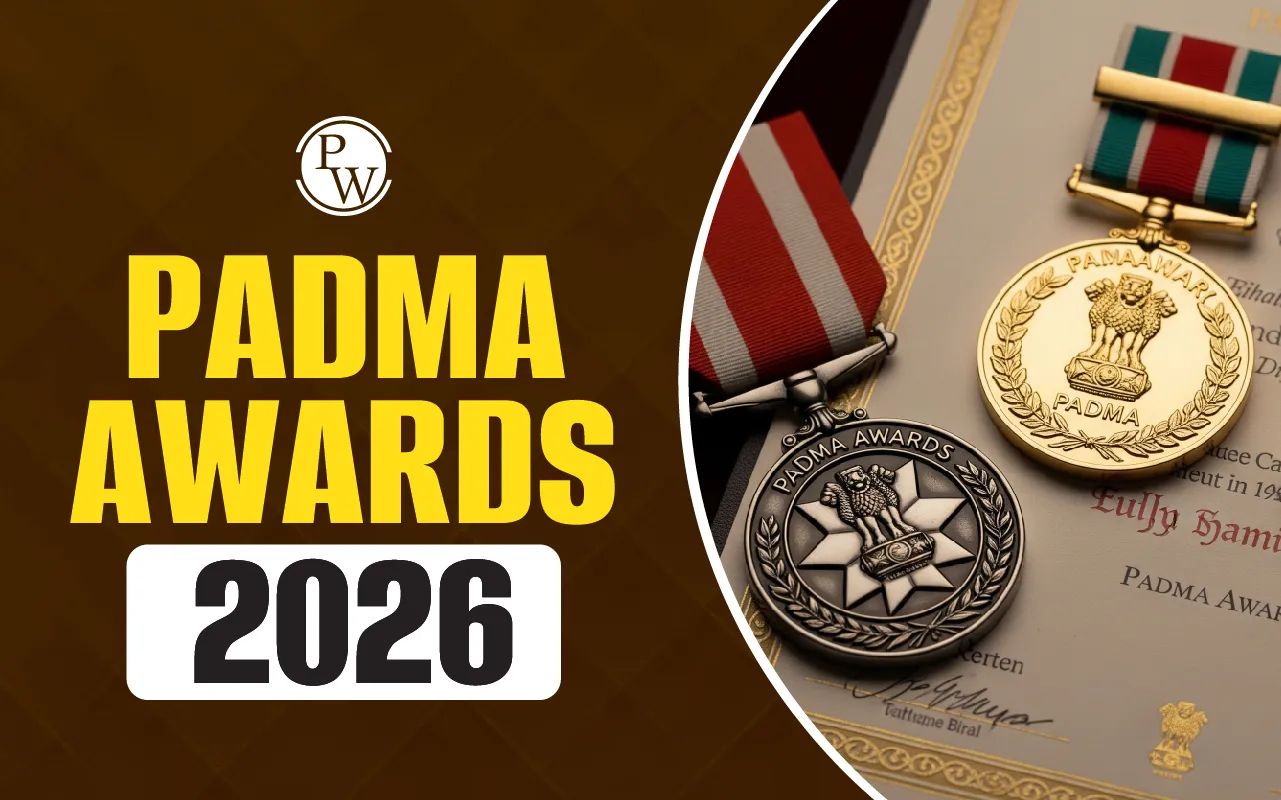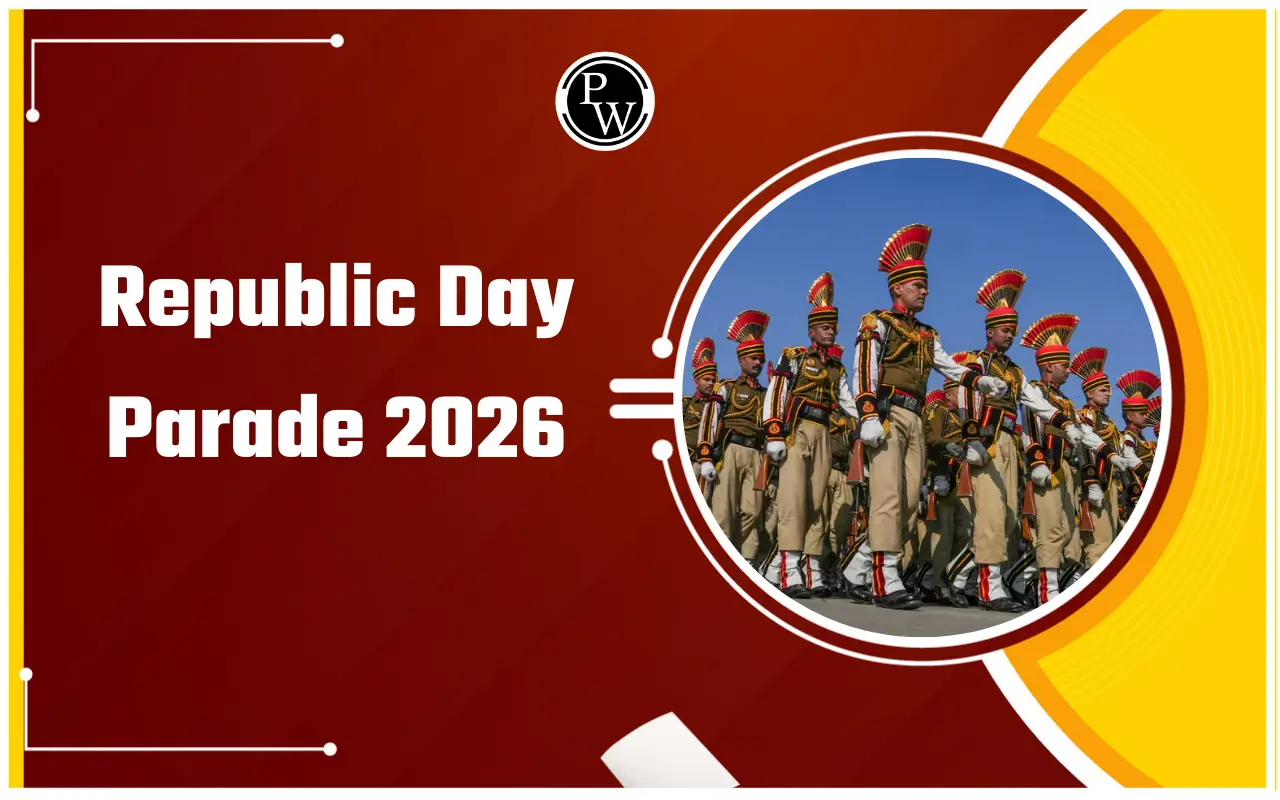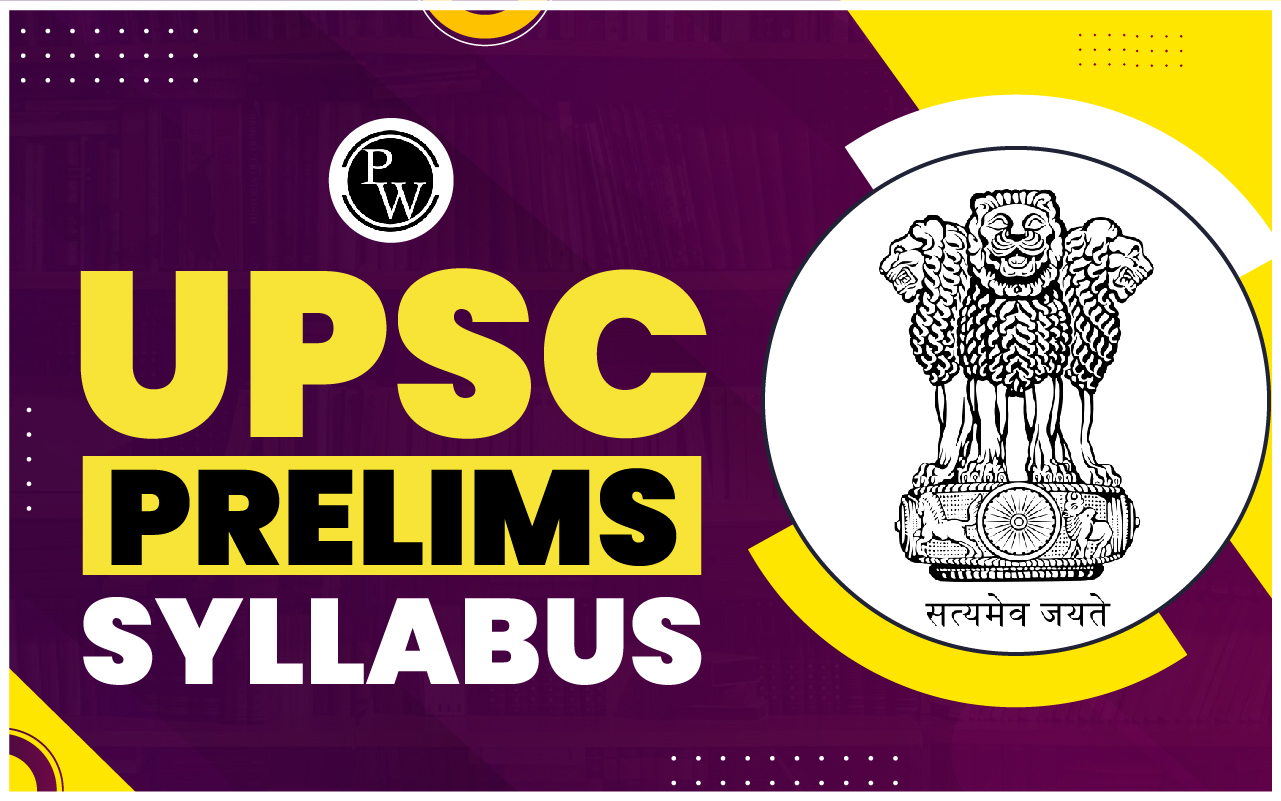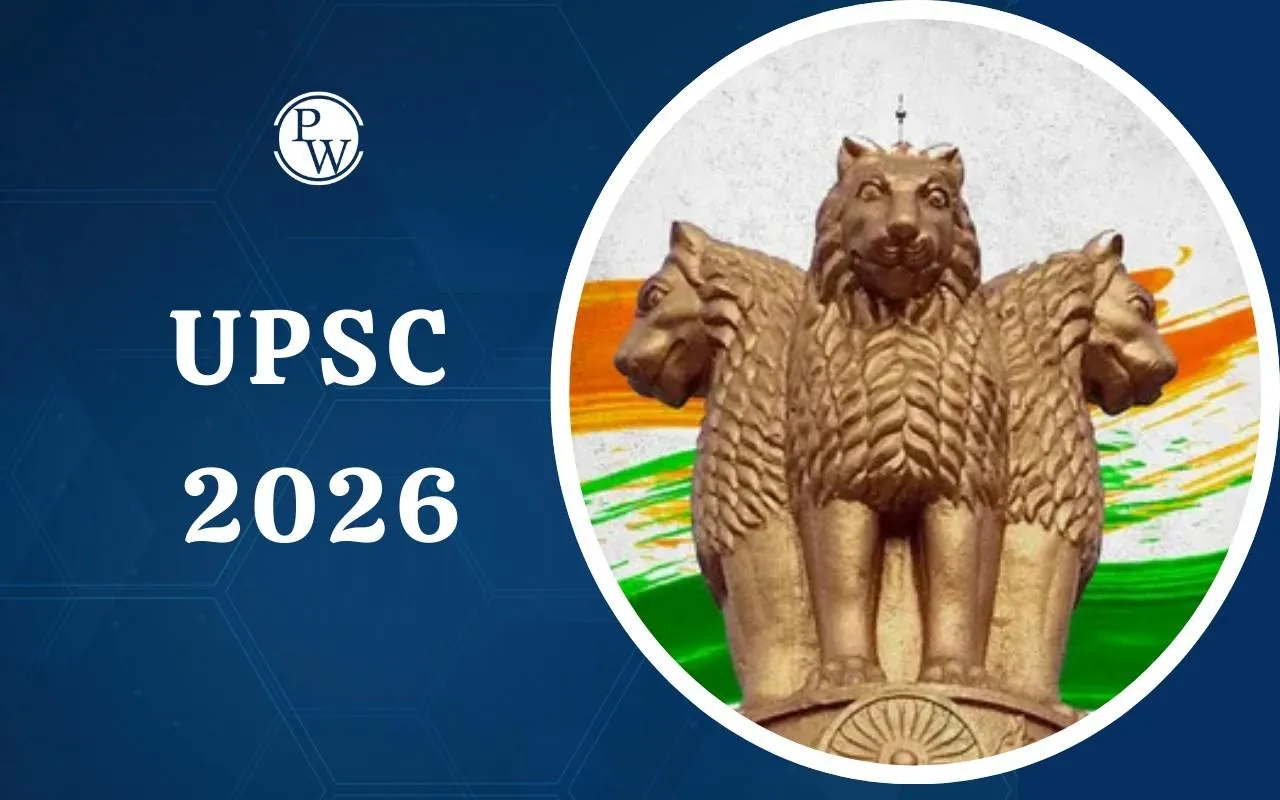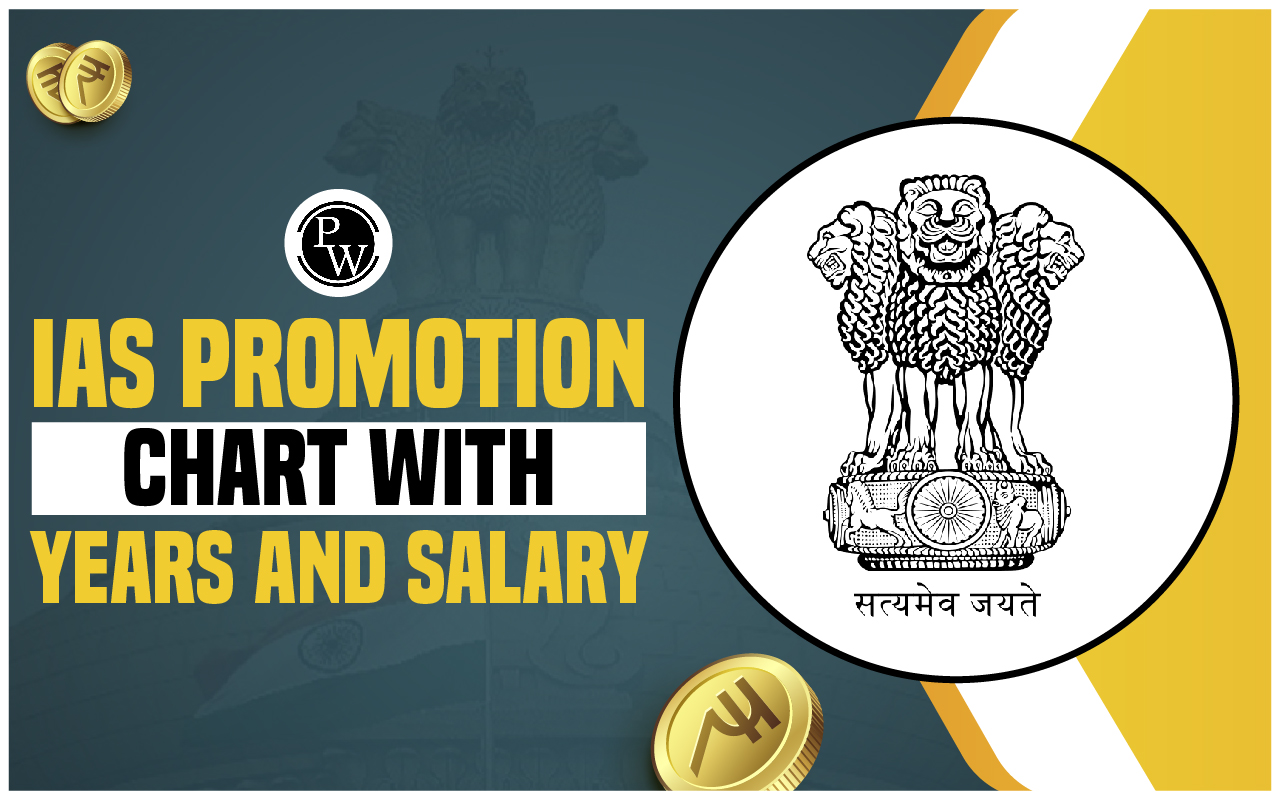
Union Budget 2024 : The Union Budget 2024-25 has been presented by Finance Minister Nirmala Sitharaman on July 23, 2024. This year there are two budgets: Interim Budget 2024 was presented on February 1st and Union Budget 2024-25 (full-fledged) was presented on Tuesday, July 23rd in the Budget Session of the newly elected government.
Union Budget 2024 is a crucial document that outlines the government's financial plan and economic priorities for the upcoming fiscal year. Union Budget 2024-25 focused on nine priorities : productivity, job creation, social justice, urban development, energy security, infrastructure, innovation, and reforms. This document also holds significant value for the UPSC exam .Union Budget 2024 Highlights
The Union Budget is known as the ‘ Annual Financial Statement’ in Article 112 of the Indian Constitution. Union Budget 2024 was the first budget of Prime Minister Narendra Modi’s third term. It reduced the fiscal deficit target to 4.5% for the fiscal year 2025. Union Budget is annually prepared by the Department of Economic Affairs (DEA) and has two parts: the annual financial statement and the demand for grants.| Union Budget 2024-25 Highlights | |
| Date of Presentation | 23 July 2024 |
| Union Budget Prepared By | Department of Economic Affairs (DEA), Ministry of Finance |
| Components of Union Budget | Revenue Budget and Capital Budget. |
| Parts | Annual financial statement and Demand for grants |
| Vision | Prosperous Bharat in harmony with nature, modern infrastructure, and opportunities for all |
| Capital Expenditure | Allocated ₹11.11 lakh crore, maintaining 3.4% of GDP |
| Fiscal Deficit Target | Reduced to 4.5% for FY 2025 |
| Economic Growth | Projected at 6.5-7% for FY 2025. |
| Tax Revenue | Increased through higher long-term capital gains tax and securities transaction tax |
Union Budget 2024-25 Important Announcements
The 2024–25 budget includes several important announcements. These include the revision of tax slabs, the modification of GST slabs, initiatives to foster economic growth, allocations for major sectors, and new schemes. Here are some of the important announcements in the Union Budget 2024-25: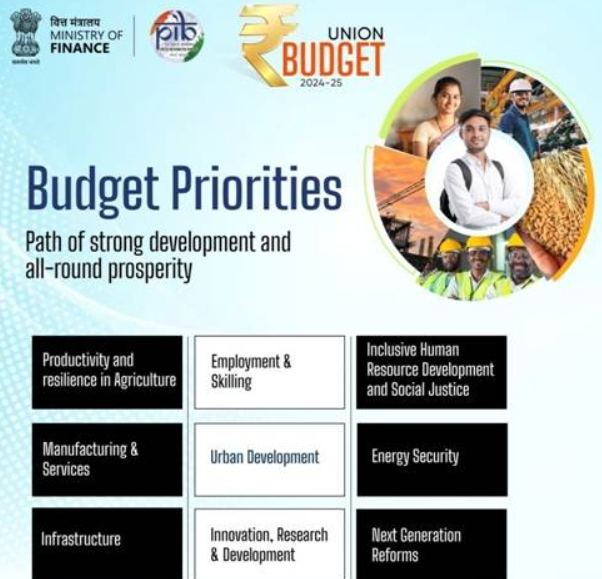
Income Tax and Capital Gains
- Standard Deduction : Increased from ₹50,000 to ₹75,000.
- Family Pension Deduction: Raised from ₹15,000 to ₹25,000.
- Tax rate reduced from 40% to 35% for foreign companies:
- Abolished Angel Tax and Short-term (STCG) increased to 20% on certain assets while Long-term (LTCG) increased to 12.5%.
- Tax Slabs: Introduced with revised tax slabs offering potential savings of up to ₹17,500.
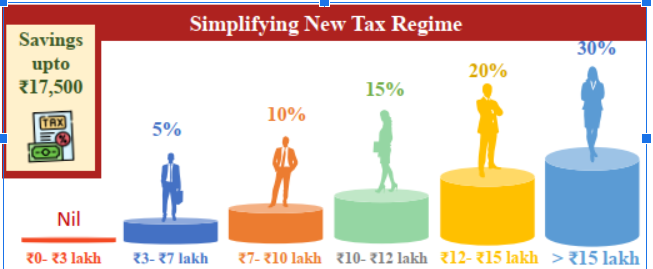
Special Packages for Andhra Pradesh and Bihar
- Bihar : Major infrastructure developments and support for industrial and tourism projects. Development of Vishnupad and Mahabodhi Temple Corridors, Rajgir, and Nalanda as major tourist destinations.
- Andhra Pradesh: ₹15,000 crore for Amravati’s development.
Custom Duties and Industrial Development
- Exemptions for three cancer medicines from customs duty.
- Twelve industrial parks have been sanctioned under the National Industrial Corridor Development Programme.
Support for the Promotion of MSMEs
Support Mechanisms : To facilitate credit continuation for stressed MSMEs.
Mudra Loan Limit: Increased to ₹20 lakh from ₹10 lakh.
Credit Guarantee Scheme : For MSMEs in manufacturing with a guarantee cover of up to ₹100 crore.
Productivity and Resilience in Agriculture
- Allocation of ₹1.52 lakh crore for agriculture and allied sectors.
- Digital crop survey to cover 6 crore farmers in 400 districts.
- Promotion initiatives for natural farming and achieving self-sufficiency in pulses and oilseeds.
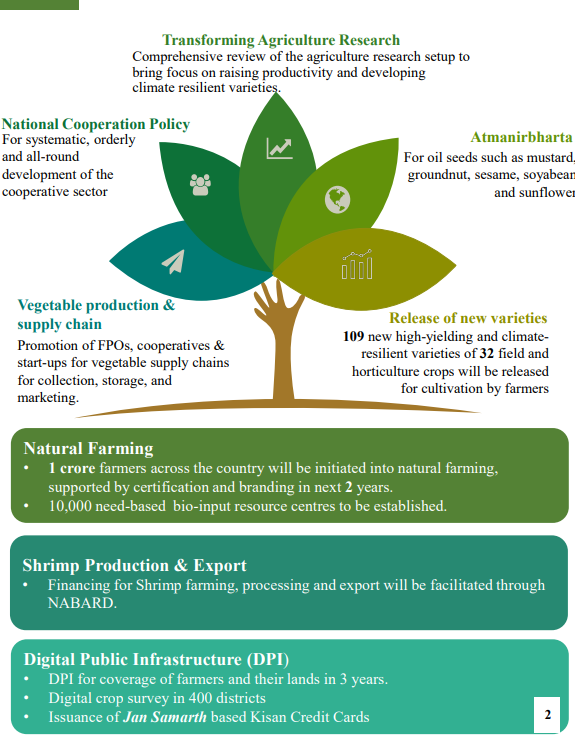
Focus on Employment and Skilling
- Allocation: ₹2 lakh crore for skilling 4.1 crore youth.
- Employment Schemes: Five schemes launched with an outlay of ₹2 lakh crore over five years.
- E-vouchers for 1 lakh students each year.
- Comprehensive internship scheme for 1 crore youth in 500 top companies over five years.
- Education Loans: Financial support for higher education loans up to ₹10 lakh.
- Upgradation of 1,000 Industrial Training Institutes (ITIs) and internships for 1 crore youth in top companies.
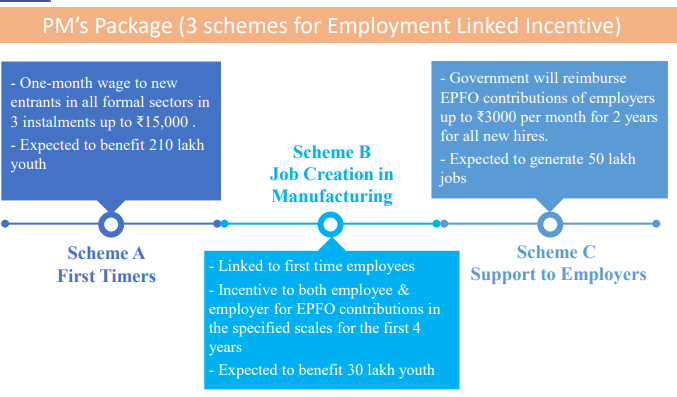
Improving Infrastructure and Housing
- Investment in Infrastructure: Promoted through viability gap funding and enabling policies.
- Pradhan Mantri Gram Sadak Yojana: Fourth phase to connect 25,000 habitations with all-weather roads.
- The government will maintain strong fiscal support for infrastructure with Capital expenditure of INR 11.11 lakh crore.
- Loan to States: Rs. 1.5 lakh crore for long-term interest-free loans to state governments for infrastructure investment.
Energy Security and Environment Focus
- R&D collaboration for small modular nuclear reactors and policy development for pumped hydro storage.
- Climate Finance Taxonomy : Development to enhance capital availability for climate adaptation and mitigation.
- PM Surya Ghar Muft Bijli Yojana for free electricity registrations.
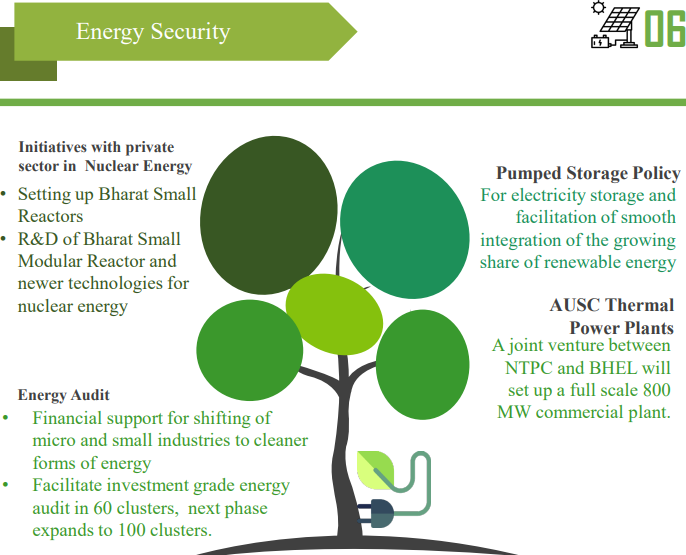
Constitutional Provisions for Budget
There are various constitutional provisions for the Union Budget, particularly ‘Article 112’. UPSC aspirants must be well aware of the following constitutional dimensions that govern the Union Budget 2024–25:| Article | Provision |
| Article 112 | President shall cause to lay an Annual Financial Statement before Parliament |
| Article 113 | No demand of grant in the Lok Sabha without prior approval of the President |
| Article 114 | Mandate no withdrawal from Consolidated Fund of India except authorization by the Parliament. |
| Article 266 | All revenue receipts generated by the government shall be credited to the Consolidated Fund of India and Revenue raised through provident fund etc, shall be credited to the Public Account of India. |
| Article 267 | Deals with the Contingency Fund of India |
History of Union Budget
India’s first budget was presented on April 7, 1860, when India was still under British colonial rule. It was introduced by the Scottish economist James Wilson , who introduced the concept of ‘income tax’. The first budget for independent India was presented by R.K. Shanmukham Chetty on November 26, 1947. The budget has evolved over the years to address the changing economic and social needs of the country. Some notable milestones include the liberalisation budget of 1991 by Dr. Manmohan Singh and the merger of the Railway Budget with the Union Budget in 2017.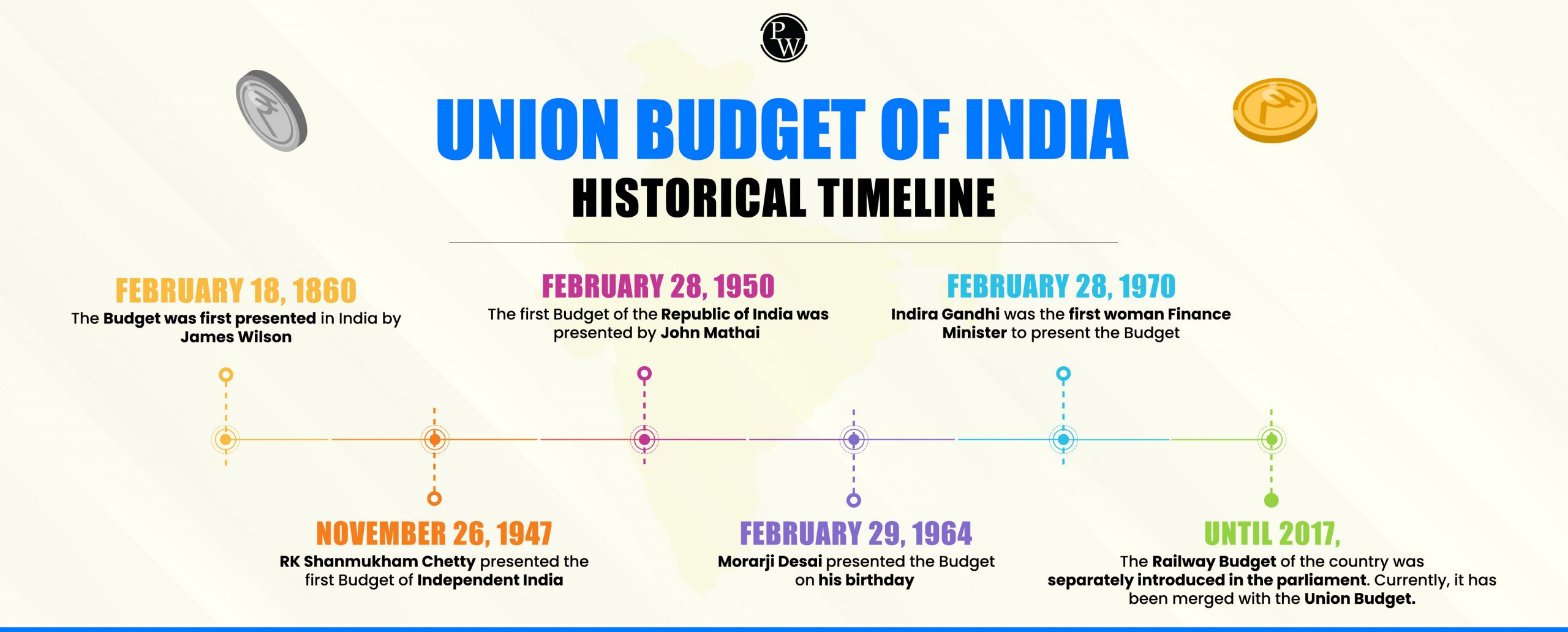 Understand:
Difference Between Economic Survey and Budget
Understand:
Difference Between Economic Survey and Budget
Process of Union Budget
The process of the Union Budget officially commences with the date of the announcement. While the preparation is usually a months-long process, key events that are associated with the Budget 2024 are:| Union Budget Process | |
| Step | Description |
| The Halwa Ceremony | Marks the start of budget printing, occurring five days before the presentation. |
| Printing the Budget | Officials involved in printing undergo a lock-in period with no outside contact. |
| Meeting the President | The Finance Minister seeks the President’s approval before presenting the budget in Parliament. |
| The Cabinet Meeting | Union Cabinet meets at 10 AM on budget day for final approval. |
| Finance Minister’s Speech | Delivered in the Lok Sabha, outlining the government’s financial plans and targets for the year. |
| Discussion on the Budget | General discussion in Parliament follows the Finance Minister’s speech. |
| Departmental Scrutiny | Parliamentary committees examine the demands for grants. |
| Voting on Demand for Grants | Lok Sabha members vote on each grant demand; no voting on expenditures from the Consolidated Fund. |
| Passing an Appropriation Bill | Authorizes withdrawal of money from the Consolidated Fund of India. |
| Passing of Finance Bill | Enacts the government’s financial proposals for the coming year. |
Procedure for Passing Union Budget 2024
The procedure for passing the Union Budget in Parliament involves six key stages. Here’s a breakdown of the process:- Presentation of Budget: The Finance Minister presents the budget to Parliament, outlining the government's financial plans for the upcoming fiscal year.
- General Discussion : Members of Parliament engage in a general discussion about the budget, expressing their views and concerns.
- Scrutiny by Departmental Committees: Various departmental committees review the budgetary allocations for their respective ministries, assessing the details and implications.
-
Voting on Demands of Grants:
The Lok Sabha members vote on the demands for grants, which are the proposed expenditures for different departments (This power is exclusive to Lok Sabha). They can propose the following motions at this stage:
- Disapproval of Policy Cut Motion: A motion to disapprove of a specific policy within the budget.
- Economy Cut Motion: Aimed at reducing the amount allocated to a particular department,
- Token Cut Motion: Symbolic motion that indicates disapproval of the budgetary provisions
- Appropriation Bill: Once the demands of grants are approved by Lok Sabha, an Appropriation Bill is introduced to authorize the government to withdraw funds from the Consolidated Fund.
- Passing of the Finance Bill: This is the final stage that must be passed for the budget to be fully implemented.
Key Features of Budget 2024
The Union Budget 2024 has been introduced on 23 July 2024. Several key features have been highlighted in the ‘Key Features of Budget 2024-25’ document by the Finance Ministry such as: Viksit Bharat by 2047 : Ensuring the development of all with the idea of ‘Sabka Saath, Sabka Vikas, Sabka Vishwas’ trinity. Women-Led Development: Over INR 3 lakh crore allocated for schemes benefiting women and girls. Inclusive Development: Making inclusive development People-centric initiatives like the development of all forms of infrastructure, strengthening the financial sector, and widening GST slabs. Social Welfare: Multiple schemes and measures to support inclusive growth, innovation, energy security, and urban development. Strategy for Amrit Kaal: Commitment to sustainable development, improving infrastructure, putting emphasis on the health sector, and focusing on the agriculture sector for India’s Amrit Kaal. Also Read: Economic Survey 2024 https://www.youtube.com/live/m3FzXlSjrec?si=qqXvpVBpii3ZwK3UKey Area to Focus in Union Budget 2024-25 for UPSC
The Union Budget 2024–25 is a crucial document for UPSC aspirants due to its relevance at almost every stage of the exam process. For example, UPSC Prelims covers factual information related to budget; in UPSC Mains, it is covered primarily in GS 3 Paper; and in the interviews, analytical questions may be asked. As a UPSC aspirant focus on these areas in the latest Union Budget 2024-25: Understanding the Budget: What is the Union Budget 2024, know who presents it, constitutional articles, the process, its overall theme, and objectives. Key Terms and Indicators: Be thorough with the budgetary terms, economic indicators, estimates, etc. related to the Indian Economy section. Major Initiatives: Focus on key announcements related to the various sectors particularly those mentioned in the UPSC syllabus such as agriculture, defence, MSME, etc. Government Schemes: New schemes and modifications in old schemes for different sections such as for women. Sometimes a direct question can be asked or can be quoted in the exam. Economic Impact : New policies introduced and changes in existing policies and their expected impact. Analysis of the budget's impact on various sectors of the economy. The Union Budget 2024 will be discussed in detail for the UPSC exam by PW OnlyIAS experts. Enroll in our UPSC courses now to not miss this event!| UPSC Related Articles | ||
| UPSC GS 3 Syllabus | UPSC Optional Subject | UPSC Syllabus 2024 |
| UPSC Mains Exam Pattern 2024 | Economy Topics for UPSC Mains | UPSC Result 2024 |
Union Budget 2024-25 FAQs
When union budget is presented?
The Union Budget 2024-25 was presented on July 23, 2024.
Who presented the first union budget of independent India?
R.K. Shanmukham Chetty presented the first Union Budget of independent India on November 26, 1947.
Which sectors will benefit from the Budget 2024?
Key sectors expected to benefit include education, agriculture, manufacturing, and infrastructure.
What are the topics for UPSC in budget 2024?
UPSC aspirants should focus on the budget process, key announcements, government schemes, economic indicators, and sectoral allocations.
What is the big announcement in Budget 2024?
Major announcements includes Land Records Digitization, Fiscal Deficit projection at 4.9% of GDP for FY24-25, ₹11.5k crore for flood control in Bihar, Assam, Himachal Pradesh, Uttarakhand, and Sikkim, etc.
Talk to a counsellorHave doubts? Our support team will be happy to assist you!

Check out these Related Articles
Free Learning Resources
PW Books
Notes (Class 10-12)
PW Study Materials
Notes (Class 6-9)
Ncert Solutions
Govt Exams
Class 6th to 12th Online Courses
Govt Job Exams Courses
UPSC Coaching
Defence Exam Coaching
Gate Exam Coaching
Other Exams
Know about Physics Wallah
Physics Wallah is an Indian edtech platform that provides accessible & comprehensive learning experiences to students from Class 6th to postgraduate level. We also provide extensive NCERT solutions, sample paper, NEET, JEE Mains, BITSAT previous year papers & more such resources to students. Physics Wallah also caters to over 3.5 million registered students and over 78 lakh+ Youtube subscribers with 4.8 rating on its app.
We Stand Out because
We provide students with intensive courses with India’s qualified & experienced faculties & mentors. PW strives to make the learning experience comprehensive and accessible for students of all sections of society. We believe in empowering every single student who couldn't dream of a good career in engineering and medical field earlier.
Our Key Focus Areas
Physics Wallah's main focus is to make the learning experience as economical as possible for all students. With our affordable courses like Lakshya, Udaan and Arjuna and many others, we have been able to provide a platform for lakhs of aspirants. From providing Chemistry, Maths, Physics formula to giving e-books of eminent authors like RD Sharma, RS Aggarwal and Lakhmir Singh, PW focuses on every single student's need for preparation.
What Makes Us Different
Physics Wallah strives to develop a comprehensive pedagogical structure for students, where they get a state-of-the-art learning experience with study material and resources. Apart from catering students preparing for JEE Mains and NEET, PW also provides study material for each state board like Uttar Pradesh, Bihar, and others
Copyright © 2026 Physicswallah Limited All rights reserved.

